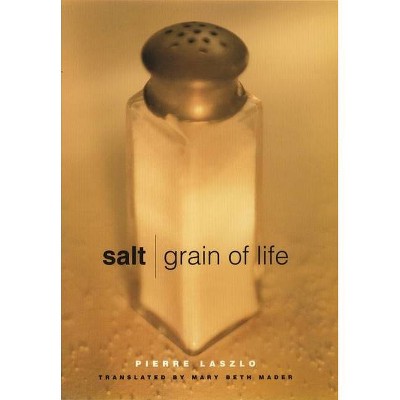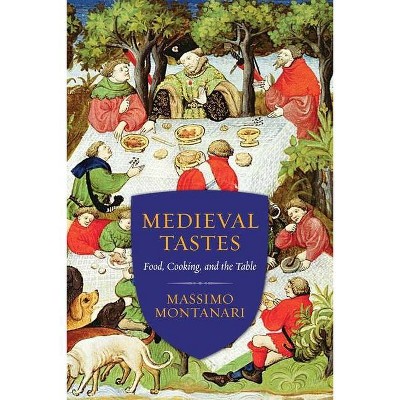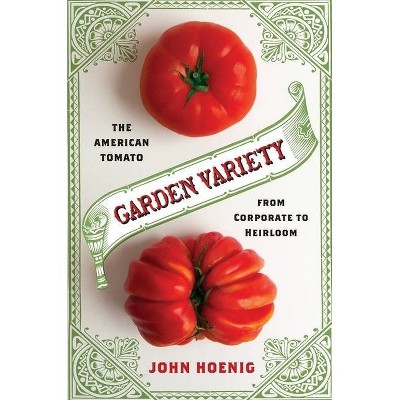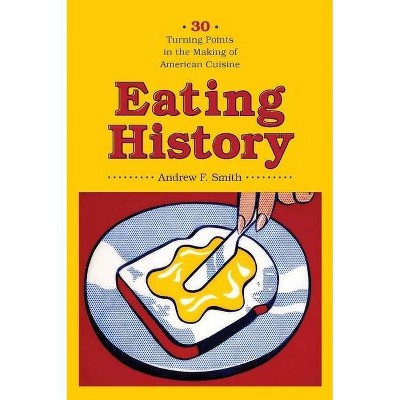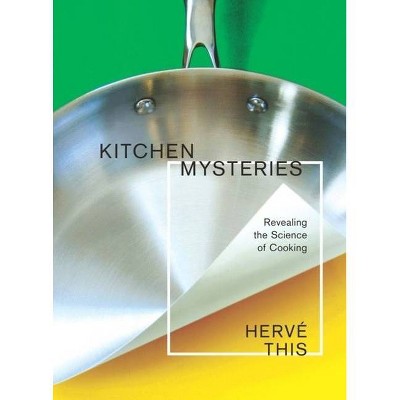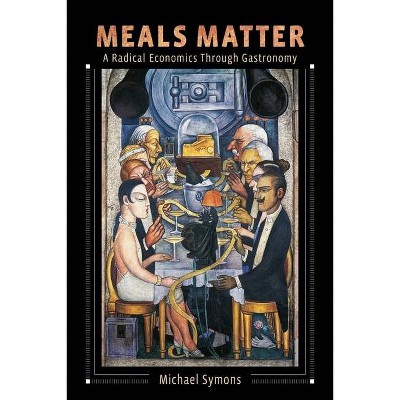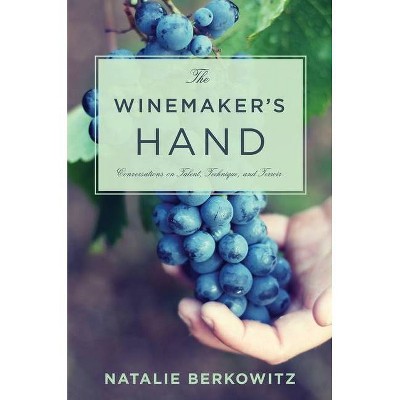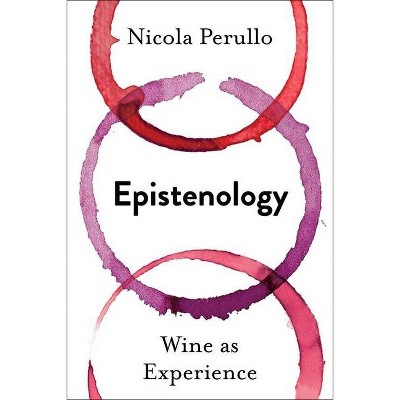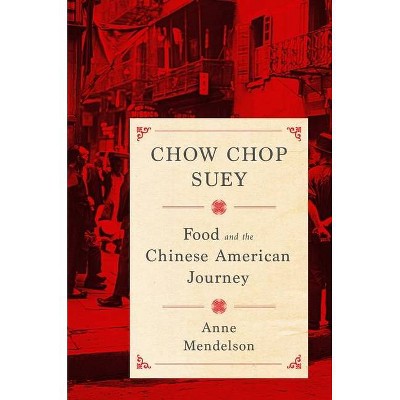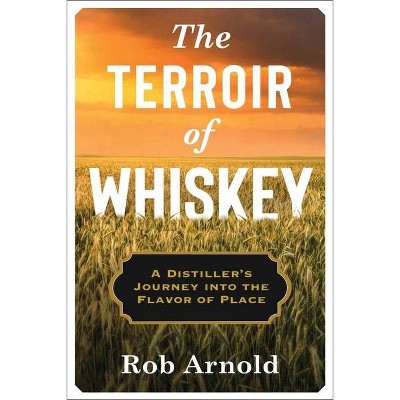Cook, Taste, Learn - (Arts and Traditions of the Table: Perspectives on Culinary H) by Guy Crosby (Hardcover)
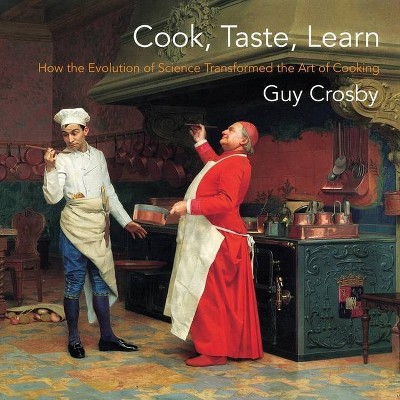
Similar Products
Products of same category from the store
AllProduct info
<p/><br></br><p><b> About the Book </b></p></br></br>Guy Crosby offers a lively tour of the history and science behind the art of cooking, with a focus on achieving a healthy daily diet. He traces the evolution of cooking from its earliest origins, recounting the innovations that have unraveled the mysteries of health and taste.<p/><br></br><p><b> Book Synopsis </b></p></br></br>Cooking food is one of the activities that makes humanity unique. It's not just about what tastes good: advances in cooking technology have been a constant part of our progress, from the ability to control fire to the emergence of agriculture to modern science's understanding of what happens at a molecular level when we apply heat to food. Mastering new ways of feeding ourselves has resulted in leaps in longevity and explosions in population--and the potential of cooking science is still largely untapped. <p/>In <i>Cook, Taste, Learn</i>, the food scientist and best-selling author Guy Crosby offers a lively tour of the history and science behind the art of cooking, with a focus on achieving a healthy daily diet. He traces the evolution of cooking from its earliest origins, recounting the innovations that have unraveled the mysteries of health and taste. Crosby explains why both home cooks and professional chefs should learn how to apply cooking science, arguing that we can improve the nutritional quality and gastronomic delight of everyday eating. Science-driven changes in the way we cook can help reduce the risk of developing chronic diseases and enhance our quality of life. The book features accessible explanations of complex topics as well as a selection of recipes that illustrate scientific principles. <i>Cook, Taste, Learn</i> reveals the possibilities for transforming cooking from a craft into the perfect blend of art and science.<p/><br></br><p><b> Review Quotes </b></p></br></br><br>Crosby is a longtime collaborator, my science expert-in-chief, who has answered every food science question I have ever had. . . . The genius of his <i>Cook, Taste, Learn</i> is that he pairs useful science with the history of cooking. This makes for a digestible work that [is] punctuated by useful deep dives into boiling in water versus cooking in oil, the science of gels, why terroir matters when cooking beans (the calcium content varies wildly), and how atomic theory changed the understanding of cooking. In Cook, Taste, Learn, you can have your cake and understand its chemistry too.--Christopher Kimball "Milk Street Magazine "<br><br>A well-developed volume with a strong foundation in science.--Choice<br><br>If you're interested in the science of food and cooking and its history, this is a great book to read.--Food Crumbles<br><br>Reveals the possibilities for transforming cooking from a craft into the perfect blend of art and science.--Food Technology<br><br>A sprightly delight.--Nature<br><br>If you are chemist who is whizz in the lab but not so great in the kitchen, this might just be the perfect thing for you!--Chemistry World<br><br>As a foodie myself I was delighted to see all suspicions confirmed in <i>Cook, Taste, Learn</i>--that advances in the culinary arts are commonly empowered by curious scientists who also happen to be hungry.--Neil deGrasse Tyson, American Museum of Natural History<br><br><i>Cook, Taste, Learn</i> entertains with a smorgasbord of curious facts, delightful explanations, and fun recipes. What is so special about olive oil? Why use one kind of potato for baking and another for boiling? How does one make scrambled eggs fluffy? Crosby's history of cooking provides a riveting education for your inner chef.--Richard Wrangham, author of <i>Catching Fire: How Cooking Made Us Human</i><br><br><i>Cook, Taste, Learn</i> elegantly intertwines history, chemistry, anthropology, and culinary science to create a captivating guided tour through the arc of human invention. The general scientific advancements feel just as vital to our enjoyment of good food as the evolution of cooking science. An accessible and inspiring contribution to the history of science!--Ali Bouzari, author of <i>Ingredient: Unveiling the Essential Elements of Food</i><br><p/><br></br><p><b> About the Author </b></p></br></br>Guy Crosby, PhD, CFS, is adjunct associate professor of nutrition at the Harvard T. H. Chan School of Public Health. He is the science editor for <i>Christopher Kimball's Milk Street</i> and was the science editor for <i>America's Test Kitchen</i>. He is coauthor of <i>New York Times</i> best-seller <i>The Science of Good Cooking</i> (2012) and <i>Cook's Science</i> (2016).
Price History
Cheapest price in the interval: 16.99 on November 8, 2021
Most expensive price in the interval: 16.99 on December 20, 2021
Price Archive shows prices from various stores, lets you see history and find the cheapest. There is no actual sale on the website. For all support, inquiry and suggestion messagescommunication@pricearchive.us
